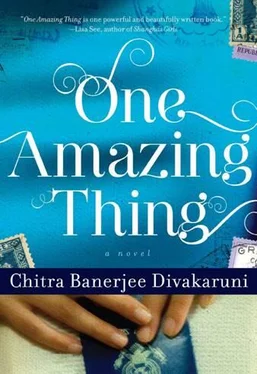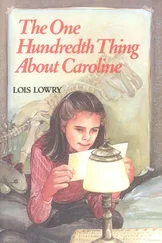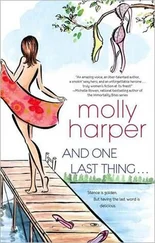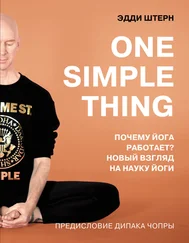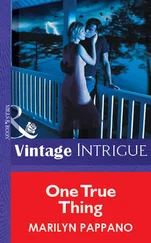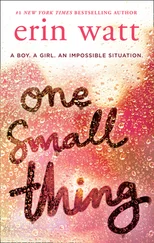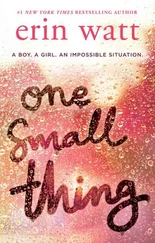
Chitra Banerjee Divakaruni
One Amazing Thing
TO MY THREE MEN
MURTHY
ANAND
ABHAY
We create stories and stories create us. It is a rondo.
CHINUA ACHEBE
If no one knows you, then you are no one.
DAN CHAON
When the first rumble came, no one in the visa office, down in the basement of the Indian consulate, thought anything of it. Immersed in regret or hope or trepidation (as is usual for persons planning a major journey), they took it to be a passing cable car. Or perhaps the repair crew that had draped the pavement outside with neon-orange netting, making entry into the building a feat that required significant gymnastic skill, had resumed drilling. Uma Sinha watched a flake of plaster float from the ceiling in a lazy dance until it disappeared into the implausibly green foliage of the plant that stood at attention in the corner. She watched, but she didn’t really see it, for she was mulling over a question that had troubled her for the last several weeks: Did her boyfriend, Ramon (who didn’t know where she was right now), love her more than she loved him, and (should her suspicion that he did so prove correct) was that a good thing?
Uma snapped shut her copy of Chaucer, which she had brought with her to compensate for the Medieval Lit class she was missing at the university. In the last few hours she had managed to progress only a page and a half into “The Wife of Bath’s Tale”-despite the fact that the bawdy, cheerful Wife was one of her favorite characters. Now she surrendered to reality: the lobby of the visa office, with all its comings and goings, its calling out of the names of individuals more fortunate than herself, was not a place suited to erudite endeavors. She surrendered with ill grace-it was a belief of hers that people ought to rise above the challenges of circumstance-and glared at the woman stationed behind the glassed-in customer-service window. The woman was dressed in a blue sari of an electrifying hue. Her hair was gathered into a tight bun at the nape of her neck, and she wore a daunting red dot in the center of her forehead. She ignored Uma superbly, as people do when faced with those whose abject destinies they control.
Uma did not trust this woman. When she had arrived this morning, assured of a nine a.m. appointment, she found several people swirling around the lobby, and more crowding behind, who had been similarly assured. When questioned, the woman had shrugged, pointing to the pile upon which Uma was to place her paperwork. Clients, she told Uma, would be called according to the order of arrival for their interview with the visa officer. Here she nodded reverently toward the office to the side of the lobby. Its closed door bore the name Mr. V.K.S. Mangalam stenciled in flowery letters on the nubby, opaque glass. Craning her neck, Uma saw that there was a second door to the office, a blank wooden slab that opened into the sequestered employees area: the customer-service window and, behind it, desks at which two women sorted piles of official-looking documents into other piles and occasionally stamped them. The woman at the counter pursed her lips at Uma’s curiosity and frostily advised her to take a seat while there was one still available.
Uma sat. What else could she do? But she resolved to keep an eye on the woman, who looked entirely capable of shuffling the visa applications around out of bored caprice when no one was watching.
NOW IT WAS THREE P.M. A FEW MINUTES EARLIER, THE WOMEN at the desks had left on their midafternoon break. They had asked the woman in the blue sari if she wanted to accompany them, and when she had declined, stating that she would take her break later, they had dissolved into giggles and whispers, which she chose to disregard. There remained four sets of people in the room, apart from Uma. In the distant corner was an old Chinese woman dressed in a traditional tunic, accompanied by a fidgety, sullen girl of thirteen or fourteen who should surely have been in school. The teenager wore her hair in spikes and sported an eyebrow ring. Her lipstick was black and so were her clothes. Did they allow students to attend school dressed like that nowadays? Uma wondered. Then she felt old-fashioned. From time to time, grandmother and granddaughter fought in fiery whispers, words that Uma longed to decipher. She had always been this way: interested-quite unnecessarily, some would say-in the secrets of strangers. When flying, she always chose a window seat so that when the plane took off or landed, she could look down on the tiny houses and imagine the lives of the people who inhabited them. Now she made up the dialogue she could not understand.
I missed a big test today because of your stupid appointment. If I fail Algebra, just remember it was your fault-because you were too scared to ride the bus here by yourself.
Whose fault was it that you overslept six times this month and didn’t get to school for your morning classes, Missy? And your poor parents, slaving at their jobs, thinking you were hard at work! Maybe I should tell them what really goes on at home while they’re killing themselves to provide for you…
Near them sat a Caucasian couple at least a decade older than Uma’s parents, their clothes hinting at affluence: he in a dark wool jacket and shoes that looked Italian, she in a cashmere sweater and a navy blue pleated skirt that reached her calves. He riffled through The Wall Street Journal; she, the frailer of the pair, was knitting something brown and unidentifiable. Twice he stepped outside-to smoke a cigarette, Uma guessed. Sometimes, glancing sideways, she saw him watching his wife. Uma couldn’t decipher the look on his face. Was it anxiety? Annoyance? Once she thought it was fear. Or maybe it was hope, the flip side of fear. The only time she heard them speak to each other was when he asked what he could pick up for her from the deli across the street
“I’m not hungry,” she replied in a leave-me-alone tone.
“You have to eat something. Build up your strength. We have a big trip coming.”
She knitted another row before responding. “Pick up whatever looks good to you, then.” After he left, she put down the knitting needles and stared at her hands.
To Uma’s left sat a young man of about twenty-five, an Indian by is features, but fair-skinned as though he came from one of the ountain tribes. He wore dark glasses, a scowl, and a beard of the kind that in recent years made airport security pull you out of line and frisk you. To her other side sat a lanky African American, perhaps in his fifties, Uma couldn’t tell. His shaved head and the sharp, ascetic bones of his face gave him an ageless, monkish appearance, though the effect was somewhat undercut by the sparkly studs in his ears. When Uma’s stomach gave an embarrassingly loud growl a couple of hours back (trusting in the nine a.m. appointment, she hadn’t brought with her anything more substantial than a bagel and an apple), he dug into a rucksack and solemnly offered her a Quaker Oats Granola Bar.
It was not uncommon, in this city, to find persons of different races randomly thrown together. Still, Uma thought, it was like a mini UN summit in here. Whatever were all these people planning to do in India?
UMA HERSELF WAS GOING TO INDIA BECAUSE OF HER PARENTS’ folly. They had come to the United States some twenty years back as young professionals, when Uma was a child. They had loved their jobs, plunging enthusiastically into their workdays. They had celebrated weekends with similar gusto, getting together (in between soccer games and Girl Scout meetings and Bharatanatyam classes for Uma) with other suburbanite Indian families. They had orchestrated elaborate, schizophrenic meals (mustard fish and fried bitter gourd for the parents; spaghetti with meatballs and peach pie for the children) and bemoaned the corruption of Indian politicians. In recent years, they had spoken of moving to San Diego to spend their golden years by the ocean (such nice weather, perfect for our old bones). Then, in a dizzying volte-face that Uma considered most imprudent, her mother had chosen early retirement and her father had quit his position as a senior administrator for a computer company to accept a consultant’s job in India. Together, heartlessly, they had rented out their house (the house where Uma was born!) and returned to their hometown of Kolkata.
Читать дальше
